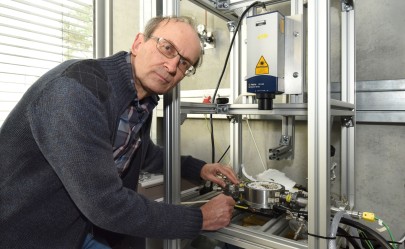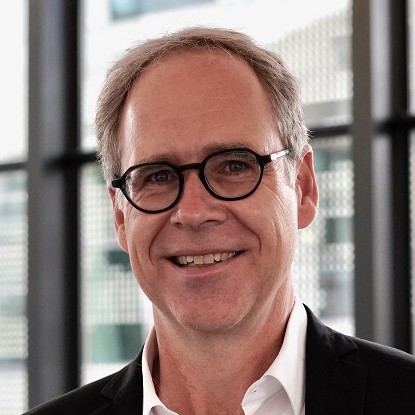Professor Dr Marin Alexe
My field of research is fascinating. The best way to explain it to non-specialists is…
My current research area is related to functional electronic materials, more specifically investigation of materials showing specific properties or effects which proximately map into active sensing devices. Some of these properties such as piezoelectricity and pyroelectricity are widely used in our daily life, e.g., microphones and high frequency filters (without which our mobile phones will not work) or presence/burglar infrared detectors. Other effects, such as electric Dzyaloshinskii–Moriya interaction, are more intricated but offer new avenues in in our research field.
What research questions are you currently working on?
I am trying to decipher the fundamental physics behind properties and effects related to spontaneous or induced symmetry breaking in functional materials. I am also active in studying bulk (junction-less) photovoltaic effect, which does not need any classical semiconductor processing, as well as on agile devices by integration of 2D semiconductors with switchable polar materials (ferroelectrics).
My most important success in research to date is…
There are several achievements that I will call “successes” in recent years, all of them being enabled by cooperation with smart and driven PhD students, postdocs, and colleagues. I will list here discovery of flexo-photovoltaic effect, interface piezo- and pyroelectric effects in Schottky junctions, and ferroelectric spin crystal as the most important.
Will the results of your research have a concrete impact on our everyday lives now or at some later date?
At least I hope so. I am expecting that someday engineers will pick up these effects I’ve been working on and will generate devices that will improve our daily life. Flexo-photovoltaic effect has the potential to increase by few percentages the overall efficiency of the existing photovoltaic panels. The interface piezoelectric effect can be in principle used to develop integrable microwave filters, which will make our mobile phones cheaper, smaller and faster.
What innovative developments are you expecting in your field of research in the next few years?
If I would suspect now that a certain research avenue will generate great results, I will go for it. It is difficult to predict successful research because the greatest research is not incremental. It is disruptive.
I became a researcher because…
I am curious.
I have chosen TU Darmstadt because…
It is a landmark in our research field; the group headed by Professor Jürgen Rödel is one of the most important in the field of functional materials. On top of that, between Jürgen and me a certain chemistry based on mutual respect and appreciation has been developed during the last years. We are brilliantly cooperating in exploring exciting new science.
What reputation does German research enjoy in your home country?
Excellent! It is recognised that German research is strong and reliable. It addresses equally fundamental, blue-sky and engineering issues.
What lasting impressions will you take back home with you from your time in Darmstadt and Germany?
That remains to be established, but I am feeling in Darmstadt half-way home.
Questionnaire for the host
Guest of: Professor Dr Jürgen Rödel
Department: Department of Materials- and Geosciences
What did you appreciate most about your guest, or what is it that impressed you most favorably…
Marin’s group is very complimentary to ours. He has set-up excellent equipment in condensed matter physics to investigate electro-optical phenomena on the nanoscale down to a few Kelvin. He also understands electrical conductivity to a very fundamental level. He is very curious and attentively listening to new approaches and gives very insightful recommendations. He is very patient and tactful if we seem to run in the wrong direction.
You, your team, and TU Darmstadt benefit from your guest’s…
We have developed new mesoscopic defect structures in oxides based on a variety of techniques on imprinting dislocation networks. Marin immediately recognized the prospects of these structures for new and fundamental electro-optical properties and also has the world-top equipment at his fingertips in his laboratory. We can simply prepare our structures, have in-depth discussions with him and then send our students to Warwick, who again will educate us on their return.







